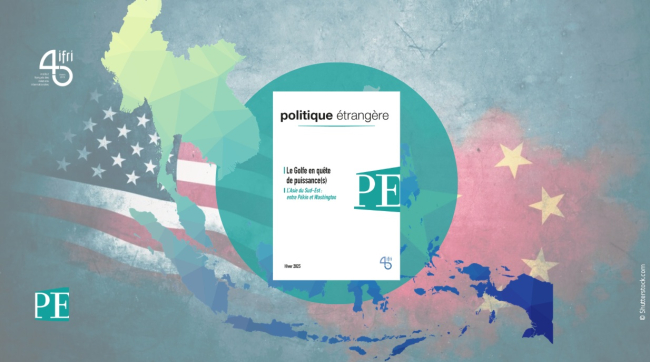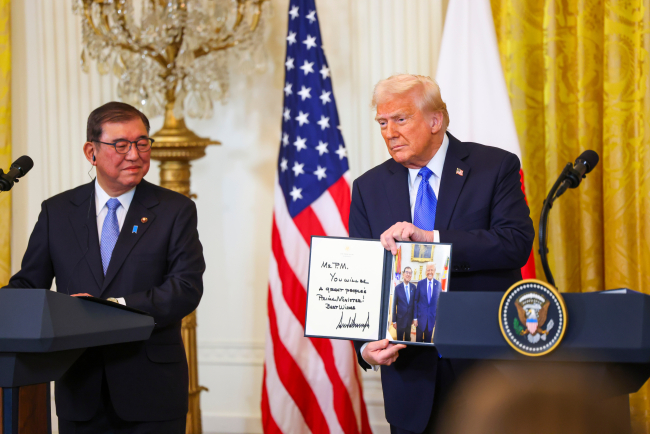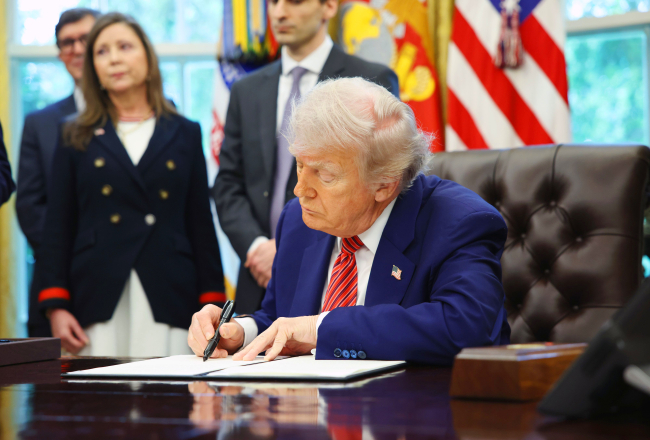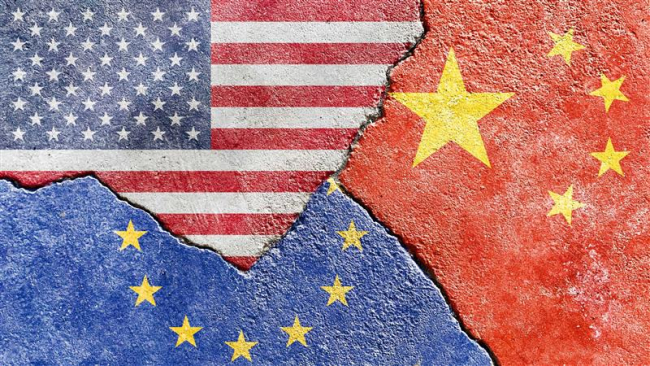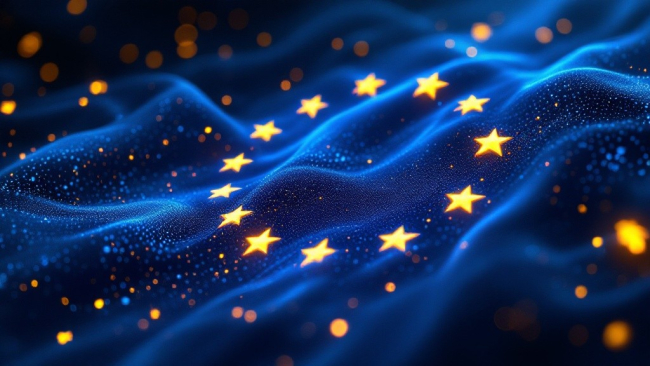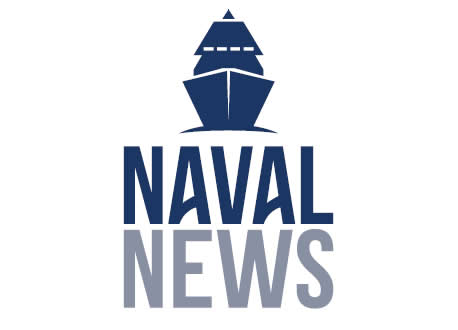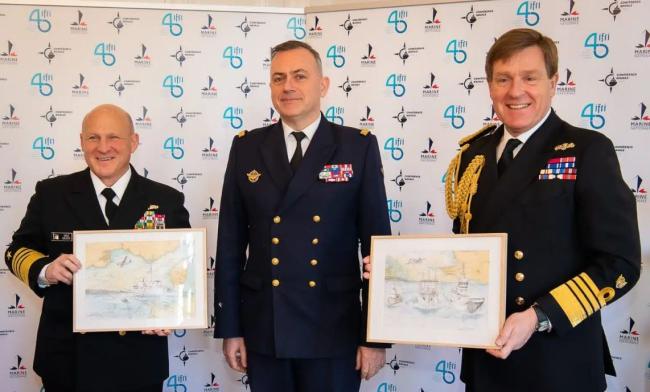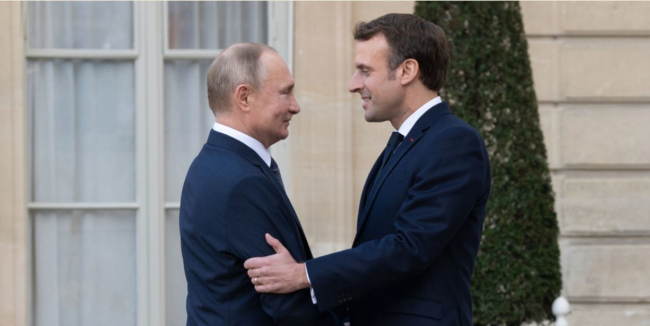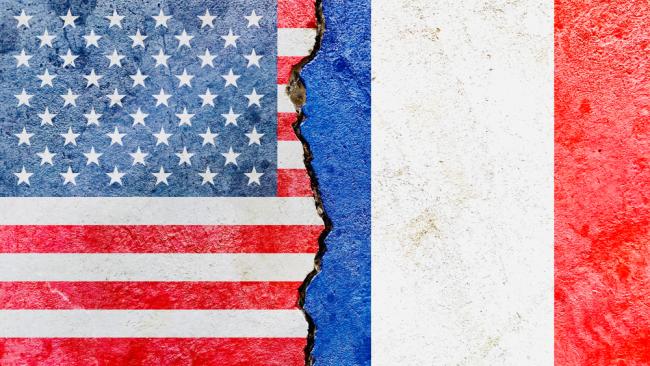
Mind the Deterrence Gap: Assessing Europe’s Nuclear Options
Europe must urgently confront a new nuclear reality. In recent years, Russia’s nuclear-backed revisionism has reintroduced nuclear coercion and the threat of nuclear escalation to the continent, underscoring the importance of credible nuclear deterrence. At the same time, Europe’s traditional reliance on US extended nuclear deterrence appears politically more fragile than at any point since the Cold War. Together, these developments require Europeans to think about their nuclear options.
Placing the EU on a Warfare Footing: Energy and Raw Materials Priorities for 2026
The year 2025 has confirmed that one must prepare for much worse in the field of geopolitics and geoeconomics as the intensity and frequency of shocks increase and as the European Union (EU) has no more stable flanks now that crises with the United States (US) become so frequent and reveal a systemic rift. In the world, barriers to trade multiply and dependencies are weaponized.
NATO: From Washington (1949) to Strasbourg/Kehl (2009)
The Alliance cannot avoid a strategic debate about its role, missions and resources. This may be painful, but it will ensure clarity and prepare the Alliance for future challenges.
France’s “Return” to NATO: An Inopportune Decision
The French decision to re-enter NATO’s integrated military structure is merely the confirmation of a series of shifts that started a long time ago. But it is no less questionable a decision. It is a symbolic decision that affects France’s image internationally. It by no means guarantees that the Alliance will evolve in a way that corresponds to France’s national interests; nor does it shed light on France’s ambiguous future. It does, however, in a very real way, risk diminishing France’s will to defend itself.
NATO and Nuclear Weapons
The changes in the way that NATO operates raise the question of whether the nuclear weapons stationed in Europe would, in a time of crisis, be an instrument of solidarity, or lead instead to divisiveness.
Caught between China and the US: Southeast Asia’s Strategic Fence-Sitting
The secret of success for many Southeast Asian countries has been their choice of economic and diplomatic multilateralism. Fence-sitting between rival powers is becoming fraught. China inspires a degree of fear in the region, due to its clout and geographical proximity. And under Trump, the United States is on the offensive against the multilateral trade system, with major diplomatic consequences. Can Southeast Asian countries maintain their balance by embracing new partnerships?
Japan Under Trump: Alliance Strains, the Push for Autonomy and Essential Partnerships
Japan is under pressure from the United States (US) on punitive tariffs and demands for increased defence spending. This has sparked deep concern over US credibility and triggered growing domestic calls for greater autonomy.
The New US Energy Policy: Energy Dominance or Fallback?
Since taking office, President Trump has defined and started to implement a new energy strategy for the United States (US), aimed at supporting fossil fuels, the nuclear industry, and the critical minerals sector.
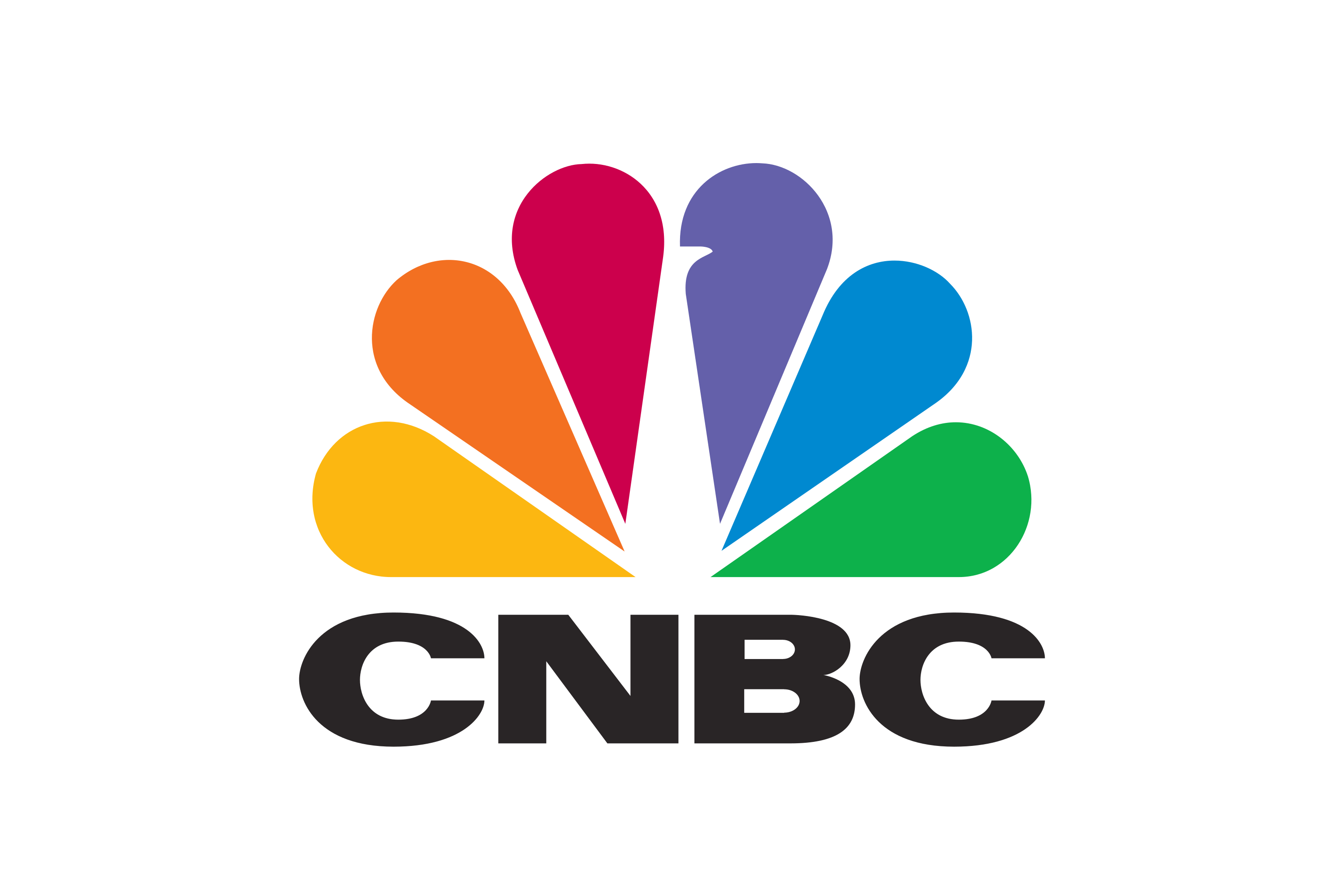

U.S. tariffs take center stage but China and the EU are quietly clashing
The U.S. tariff saga has stolen global spotlight from trade tensions between China and the European Union, which are now heating up.
Thomas Gomart, director of the French Institute of International Relations: 'Trump reasserts the US' strategic centrality'
By bombing Iran alongside Israel, Donald Trump has performed a show of force aimed at China and Russia, explains the director of the French Institute of International Relations in an interview.

Mind the Deterrence Gap: Assessing Europe’s Nuclear Options
Europe must urgently confront a new nuclear reality. In recent years, Russia’s nuclear-backed revisionism has reintroduced nuclear coercion and the threat of nuclear escalation to the continent, underscoring the importance of credible nuclear deterrence. At the same time, Europe’s traditional reliance on US extended nuclear deterrence appears politically more fragile than at any point since the Cold War. Together, these developments require Europeans to think about their nuclear options.
Placing the EU on a Warfare Footing: Energy and Raw Materials Priorities for 2026
The year 2025 has confirmed that one must prepare for much worse in the field of geopolitics and geoeconomics as the intensity and frequency of shocks increase and as the European Union (EU) has no more stable flanks now that crises with the United States (US) become so frequent and reveal a systemic rift. In the world, barriers to trade multiply and dependencies are weaponized.
NATO: From Washington (1949) to Strasbourg/Kehl (2009)
The Alliance cannot avoid a strategic debate about its role, missions and resources. This may be painful, but it will ensure clarity and prepare the Alliance for future challenges.
France’s “Return” to NATO: An Inopportune Decision
The French decision to re-enter NATO’s integrated military structure is merely the confirmation of a series of shifts that started a long time ago. But it is no less questionable a decision. It is a symbolic decision that affects France’s image internationally. It by no means guarantees that the Alliance will evolve in a way that corresponds to France’s national interests; nor does it shed light on France’s ambiguous future. It does, however, in a very real way, risk diminishing France’s will to defend itself.
NATO and Nuclear Weapons
The changes in the way that NATO operates raise the question of whether the nuclear weapons stationed in Europe would, in a time of crisis, be an instrument of solidarity, or lead instead to divisiveness.
Caught between China and the US: Southeast Asia’s Strategic Fence-Sitting
The secret of success for many Southeast Asian countries has been their choice of economic and diplomatic multilateralism. Fence-sitting between rival powers is becoming fraught. China inspires a degree of fear in the region, due to its clout and geographical proximity. And under Trump, the United States is on the offensive against the multilateral trade system, with major diplomatic consequences. Can Southeast Asian countries maintain their balance by embracing new partnerships?
Japan Under Trump: Alliance Strains, the Push for Autonomy and Essential Partnerships
Japan is under pressure from the United States (US) on punitive tariffs and demands for increased defence spending. This has sparked deep concern over US credibility and triggered growing domestic calls for greater autonomy.
The New US Energy Policy: Energy Dominance or Fallback?
Since taking office, President Trump has defined and started to implement a new energy strategy for the United States (US), aimed at supporting fossil fuels, the nuclear industry, and the critical minerals sector.
Quest for Strategic Autonomy? Europe Grapples with the US - China Rivalry
Building on the 2020 European Think Tank Network on China (ETNC) report, which assessed Europe’s positioning amid the strategic rivalry between the United States and China, this edition re-examines the geopolitical landscape in light of the Covid-19 pandemic, Russia’s war in Ukraine and Donald Trump’s return to the White House. This report features 22 national chapters and one dedicated to the EU, analysing the evolution of Europe’s relations with Washington and Beijing, the range of approaches to dealing the US-China rivalry and how these are expected to evolve.
European Startups and Generative AI: Overcoming Big Tech Dominance
Europe is at a crossroads. Faced with the domination of American Big Tech across the entire generative Artificial Intelligence (AI) value chain, from foundation models to cloud infrastructure, distribution channels, and open source, it risks long-term technological and economic decline. Yet generative AI also represents a major opportunity for economic transformation, with a potential value estimated at 1.5 times France’s gross domestic product (GDP). To turn it into a driver of renewal, Europe must move beyond the illusion of total technological independence and instead build an ecosystem that leverages Big Tech resources while strengthening its own innovation capabilities.


U.S. tariffs take center stage but China and the EU are quietly clashing
The U.S. tariff saga has stolen global spotlight from trade tensions between China and the European Union, which are now heating up.
Thomas Gomart, director of the French Institute of International Relations: 'Trump reasserts the US' strategic centrality'
By bombing Iran alongside Israel, Donald Trump has performed a show of force aimed at China and Russia, explains the director of the French Institute of International Relations in an interview.


The 'Macron Doctrine' goes to Asia: Autonomy with partners, steady on China
The French president calls for a 'third way' in the Indo-Pacific
How Will the Trump Presidency Change EU-China Relations?
Over the past few years, European countries have started to line up with the United States on China policy. But now, as Donald Trump destroys the trust European countries had in America, China is stepping up, promising stability and consistency.


Iran’s allies are attacking the West. What happens next?
From Jordan to Lebanon to the Red Sea, attacks on U.S. and European interests are increasing.Tensions are rising in the Middle East after Washington vowed to respond to the drone attack that killed three American soldiers on the 28th of January, sponsored by Iranian-backed militants.
US Navy, French Navy And Royal Navy See Eye To Eye On Interoperability
The heads of the three leading NATO navies, the Chief of Naval Operations (CNO), Admiral Mike Gilday, First Sea Lord, Admiral Ben Key, and the Chief of Staff of the French Navy, Admiral Pierre Vandier, met last week in France for the first ever "Paris Naval Conference".


CNO Delivers Remarks at Paris Naval Conference
CNO Delivers Remarks at Paris Naval Conference
Below is a transcript of the remarks as delivered:
THOMAS GOMART: Just a quick announcement before starting. If you don't want to practice your French you can use receptors which are with this gentleman over there or at the table, because I will speak French and switch to English for the session.


French delight as Emmanuel Macron will be first world leader to visit Biden in US
President Macron is set to become the first world leader to make a state visit to the US during the Biden presidency, to the delight of Paris. Following the announcement on Tuesday, some commentators claimed that France was being “pampered” by the US, while others drew a contrast with what they described as Britain’s loss of prestige on the global stage following Brexit.
Kremlin Is Top Destination For Spooked European Leaders
Rarely in recent years has the Kremlin been so popular with European visitors. French President Emmanuel Macron arrives Monday. The Hungarian prime minister visited last week. And in days to come, the German chancellor will be there, too. All are hoping to get through to President Vladimir Putin, the man who singlehandedly shapes Russia’s course amid its military buildup near Ukraine and whose designs are a mystery even for his own narrow inner circle.
Sub snub just one symptom of longtime French unease with US
Born of a revolution fought for liberty, ties between the United States and its oldest ally, France, have long been fraternal, but they've also been marked by deep French unease over their equality.
Replay - Europe in turbulence: navigating a new world order without the United States?
A webinar organized by the Austro-French Centre for Rapprochement in Europe (ÖFZ) and the French Institute of International Relations (Ifri), on June 25, 2025. The foundations of the post-1945 international order, long anchored by U.S. leadership, are shifting. Amid intensifying geopolitical rivalry, democratic backsliding, and strategic fatigue in Washington, the question arises: what if the United States no longer plays its pivotal role in international security? Simultaneously, the Global South is asserting new political and economic agency, complicating the old binaries of West vs. Rest. For Europe, this landscape is both a challenge and an inflection point.
Trump's Indo-Pacific Vision & Japan's Strategic Autonomy
Satoru Mori, Senior Fellow at the Nakasone Peace Institute, explores key insights into President Trump's likely priorities for the Indo-Pacific region. His primary concerns include addressing economic trade imbalances with countries like China, Japan, and South Korea. Additionally, he aims to deter regional conflicts, particularly over Taiwan, and wishes to advance the denuclearization of North Korea.
(Replay) US-China-Taiwan Relations: What to expect in the Trump II Era?
Replay of Ifri's Center for Asian Studies' conference "US-China-Taiwan Relations: What to expect in the Trump II era?", held at Ifri on Tuesday 11 March 2025.
Naval Power in Support of Maritime Economy: An Interview with Vice-Admiral Jeffrey Anderson (U.S. Navy)
On the sidelines of the Paris Naval Conference 2025, on February 4, 2025, organized by Ifri and the French Navy, Vice-Admiral Jeffrey Anderson, Commander of the 6th Fleet, U.S. Navy, and Commander of the Striking and Support Forces NATO, share insights on the crucial role that naval power plays in support of maritime economy.
Replay - Paris Naval Conference 2025: Naval Power in support of Maritime Economy
Replay of the third edition of the Paris Naval Conference (CNP), bringing together high-level speakers from the military, industry and academia, for the aim of addressing the issues of securing the maritime economy for the world's navies.
NATO: 75 Years of Strategic Solidarity (replay)
The war in Ukraine, burden-sharing between Allies, U.S. disengagement from Europe, new areas of conflict... At a time when the Alliance has just celebrated its 75th anniversary and the Stoltenberg era is drawing to a close after ten years at the head of the organization, NATO's agenda bears witness to the diversity of its areas of action, as well as to the different perceptions of the Allies on these issues.
In the wake of the Washington summit, this conference of diplomats, military officers and researchers aims to analyze the short- and medium-term prospects for the Atlantic Alliance.
Can U.S. Export Controls Stop China’s Tech Rise?
An interview with Kevin Wolf, Partner, Akin, led at Ifri on September 24, 2024. For years, Kevin Wolf has played a key role elaborating and implementing export controls within the U.S. administration. How does he evaluate the efficiency of these controls? Are they likely to reach the stated objective of maintaining the biggest lead possible between the U.S. and China, particularly for semiconductors? How could existing controls and regulations be altered to improve their efficiency?
Global Financial Shifts: The Impact of Dollar Sanctions and Frozen Russian Assets
An interview with Brad Setser, Whitney Shepardson Senior Fellow (Council on Foreign Relations) led at Ifri on September 24, 2024.
Dollar-based financial sanctions have been increasing, particularly since the beginning of the century. Is this phenomenon likely to significantly alter the international role of the dollar?
There is a lot of controversy about the in which way frozen assets from Russia’s central bank should be treated, regarding both the assets themselves and the associated revenues. What consequences do you foresee for the international financial system?
2024 Election: What's Next for U.S. International Economic Policy?
An interview with Emily Blanchard, Tuck School of Business at Dartmouth College and CEPR.
How does she see the prospects for U.S. international economic policy, depending on who wins the election in November 2024?
The Japan-US alliance under the Biden administration: Quo vadis?
In this interview, Kunihiko MIYAKE, President of the Foreign Policy Institute; Research Director, The Canon Institute for Global Studies (CIGS) and Special Adviser to Prime Minister Yoshihide Suga’s Cabinet looks at the Japan-US alliance under the Biden administration.
The Biden Administration: What Consequences for Allies? Views from Japan and France
The US allies greeted the election of Joe Biden with relief, but also with expectations.
U.S. public opinion and the 2020 campaign: an interview with John Zogby
John Zogby, Senior Partner, John Zogby Strategies LLC and Founder, The Zogby Poll speaks about U.S. public opinion and the 2020 campaign on the sidelines of Ifri's 18th annual U.S. conference held on December 6, 2019.
Support independent French research
Ifri, a foundation recognized as being of public utility, relies largely on private donors – companies and individuals – to guarantee its sustainability and intellectual independence. Through their funding, donors help maintain the Institute's position among the world's leading think tanks. By benefiting from an internationally recognized network and expertise, donors refine their understanding of geopolitical risk and its consequences on global politics and the economy. In 2025, Ifri supports more than 80 French and foreign companies and organizations.










